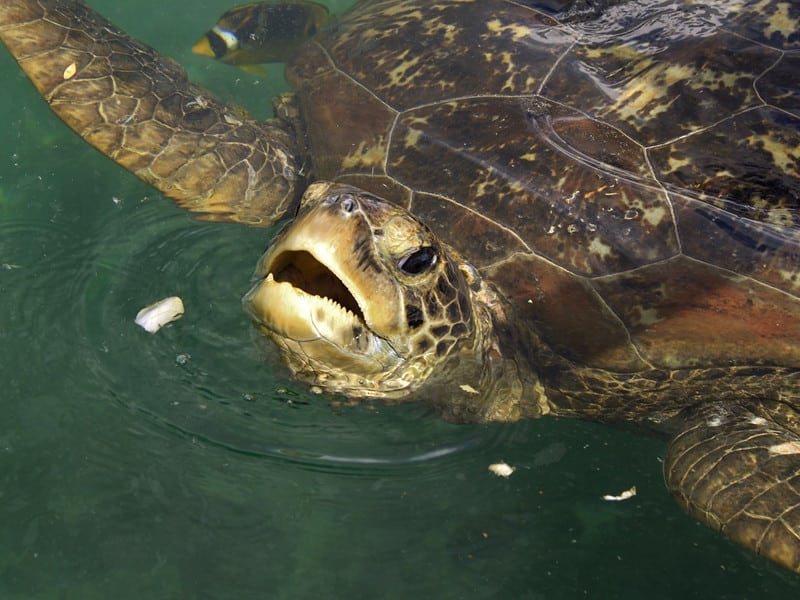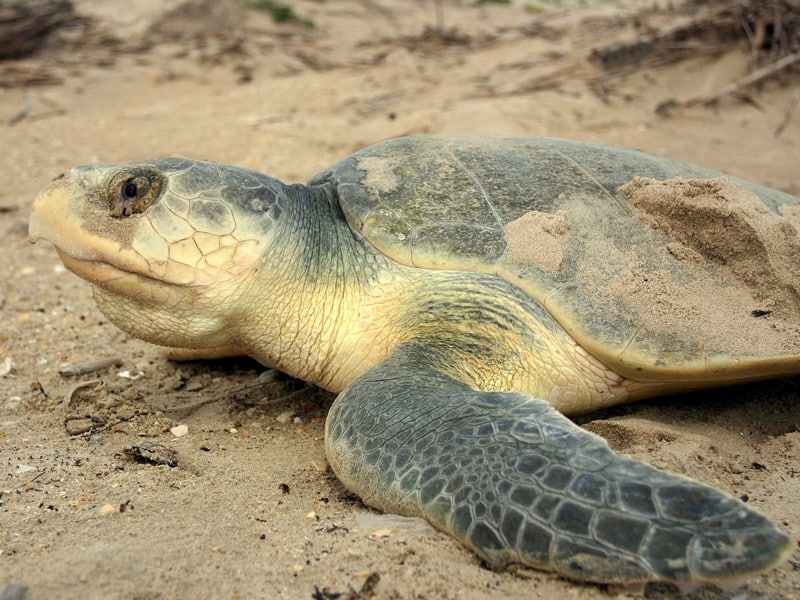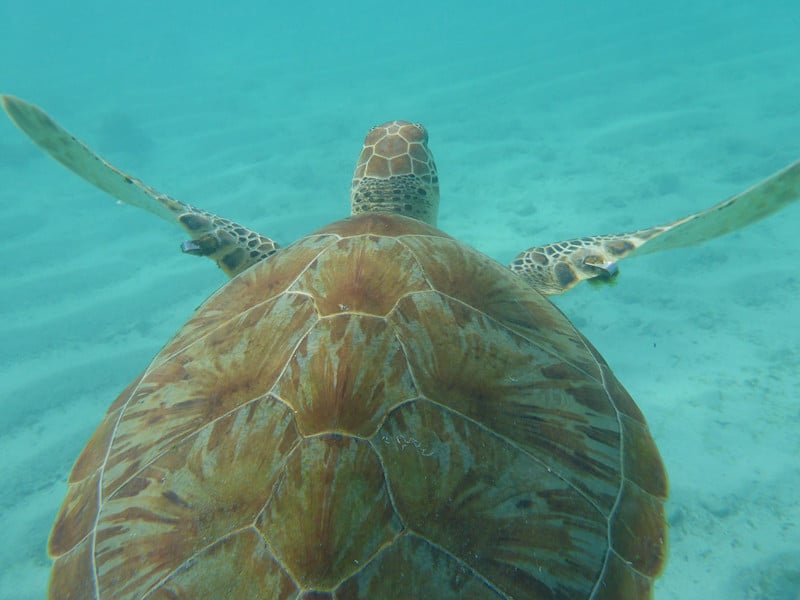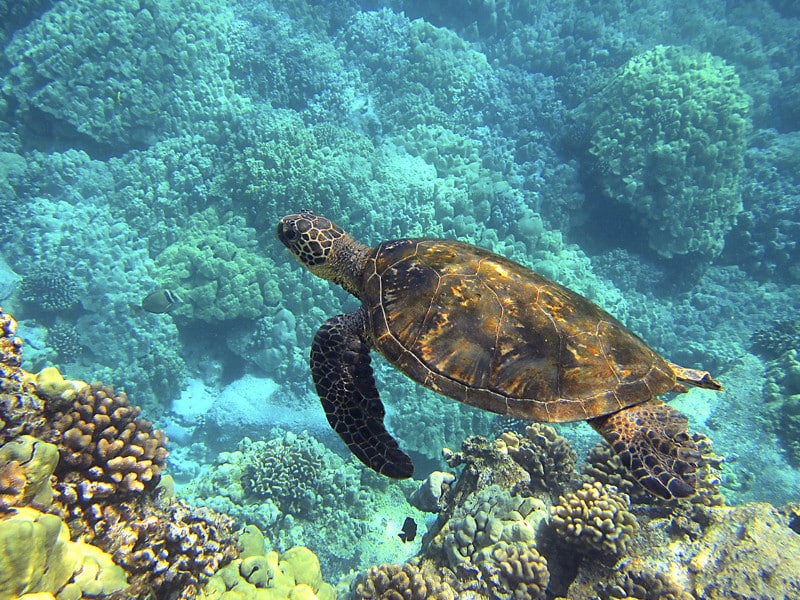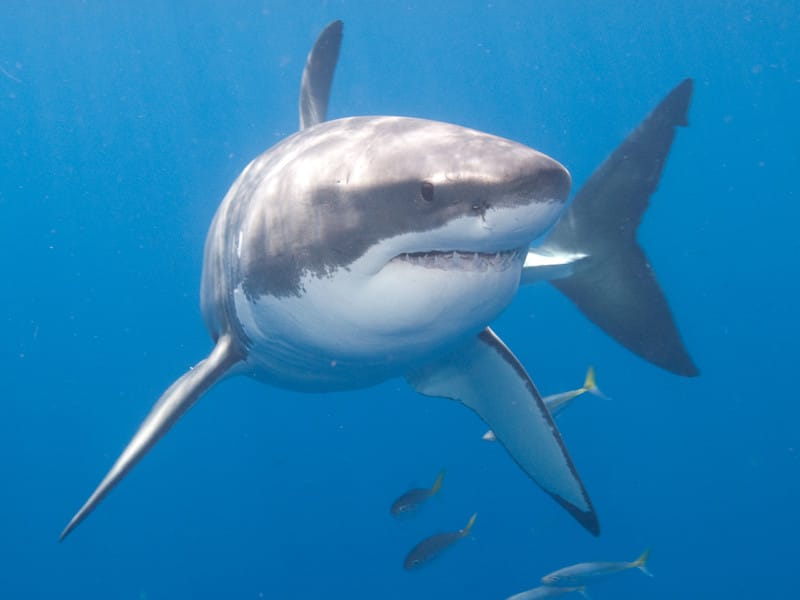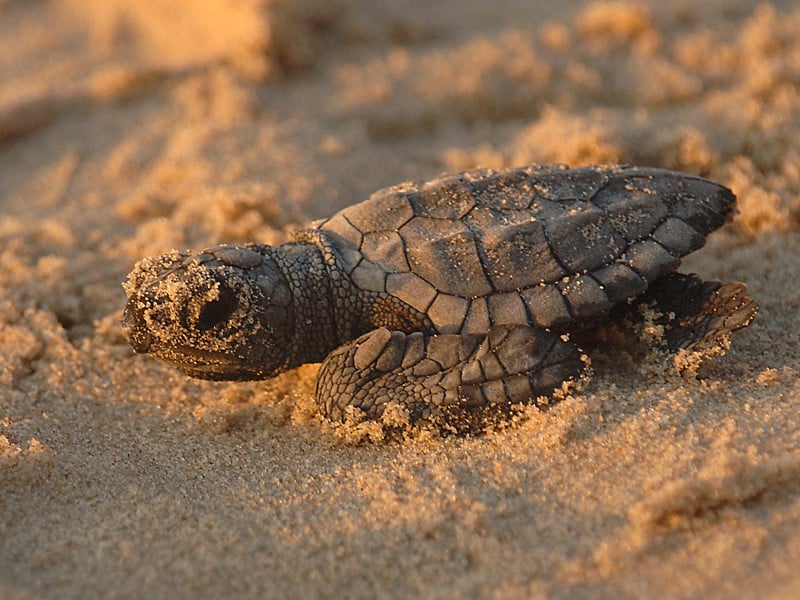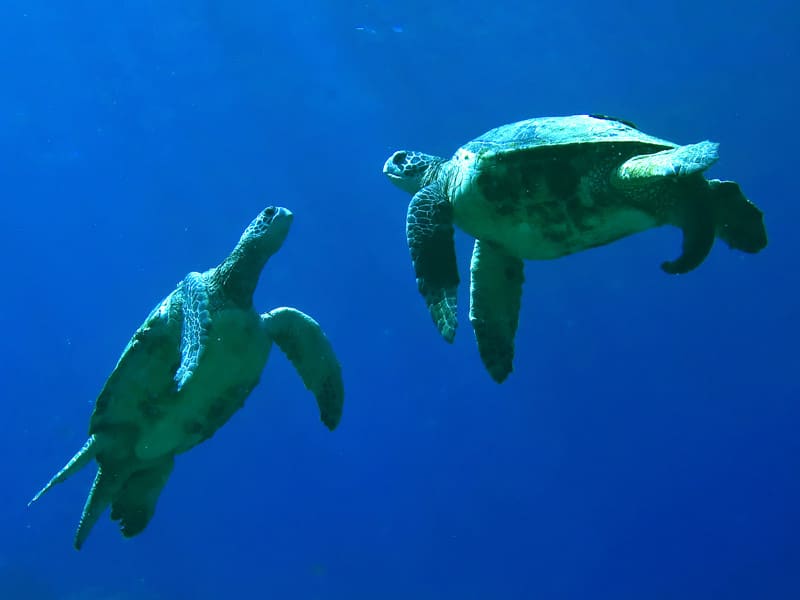What do Sea Turtles Eat?
Feeding varies according to the species and the age of the turtle. They can be omnivorous, herbivorous or carnivorous and this is also related to the shape of the mouth which has a form adapted to the kind of food they consume.
In the case of the green turtle, their diet is carnivorous since they are born until they reach the juvenile stage, but it becomes herbivorous when they reach adulthood.
Sea turtles have an incredible defense mechanism which makes them completely immune to jellyfish venom.
The mouth of sea turtles has a shape similar to a beak, and it is rigid, stiff and with a serrated edge, capable of pulling off marine plants and crushing small animals with hard shells like crabs and snails or piercing jellyfish.
They have long, sharp papillae inside their mouth and in the esophagus so that soft, slippery prey like fish and jellyfish can not escape.
Young sea turtles of some species feed on large quantities of jellyfish. Several types of these organisms have high levels of venom that is deadly to most animals of the marine fauna, but chelonians have an incredible defense mechanism that makes them completely immune to jellyfish venom.
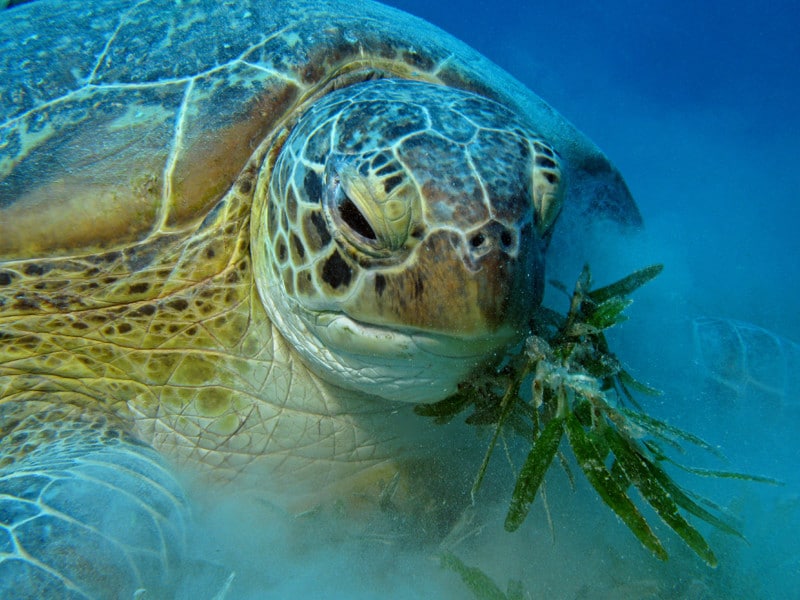
The leatherback sea turtle, for example, feeds on one of the animals considered among the most poisonous in the world: the sea wasp. These cubozoans are the most lethal jellyfish in the world, however, for the leatherback sea turtle, this does not seem to represent a danger, and it also helps to control their population.
The following are the main foods of sea turtles according to their species.
TURTLE SPECIES |
HATCHLINGS AND YOUNG |
ADULTS |
| Leatherback (Dermochelys coriacea) | Jellyfish and soft-bodied invertebrates. | Jellyfish and soft-bodied invertebrates. |
| Green (Chelonia mydas) | Omnivores. Marine plants, crustaceans, marine worms, sponges. | Herbivores. Seagrass, seaweed. |
| Loggerhead (Caretta caretta) | Omnivores. Seaweed, seagrass, crabs, sponges. | Carnivores. Horseshoe crabs, snails, sponges, jellyfish, sea urchins, fish eggs, shrimp. |
| Flatback (Natator depressus) | Omnivores. Sea cucumbers, jellyfish, crabs, soft corals, algae, mollusks. | Omnivores. Sea cucumbers, jellyfish, crabs, soft corals, algae, mollusks. |
| Hawksbill (Eretmochelys imbricata) | Marine sponges, algae, sea worms, mollusks. | Marine sponges, algae, sea worms, mollusks. |
| Kemp’s Ridley (Lepidochelys kempii) | Carnivores. Jellyfish, crabs, shrimp, small fish. | Carnivores. Jellyfish, crabs, shrimp, small fish. |
| Olive Ridley (Lepidochelys olivacea) | Omnivores. Sea plants, lobsters, shrimp, jellyfish, snails, seaweed. | Omnivores. Sea plants, lobsters, shrimp, jellyfish, snails, seaweed. |
Plastic bags represent a significant threat to sea turtles because when filled with water, they look like a jellyfish, their primary food.
Sea turtle feeding has a vital ecological role since it regulates populations of certain species that reproduce massively and can represent a risk for the marine fauna. The green sea turtle, for example, helps to keep controlled the volume of algae in the sea. The leatherback turtles as previously mentioned, constrain the population of sea wasps, and other species maintain a control of sponges.
Unfortunately, marine pollution has led to the reduction of sea turtle populations, leaving many of them on the brink of extinction. Plastic objects have been found in the stomachs of these reptiles because they are often confused with prey. Plastic bags pose the greatest danger because when filled with water, they simulate a jellyfish, their primary food. That is why it is important to protect the beaches and avoid disposing garbage into the ocean; We could save many animal lives by just taking our waste home or throwing it in the proper containers.
References
Jeanette Wyneken, Kenneth J. Lohmann, John A. Musick. The Biology of Sea Turtles, Volume 3. CRC Press, Mar 25, 2013. Page 211.
https://seaworld.org/en/animal-info/animal-infobooks/sea-turtles/diet-and-eating-habits
http://www.seeturtles.org/sea-turtle-diet/
Jeff Ripple. Sea Turtles. Voyageur Press, 1996

